'Comfort women': Taiwan tells Japan to extend compensation
- Published
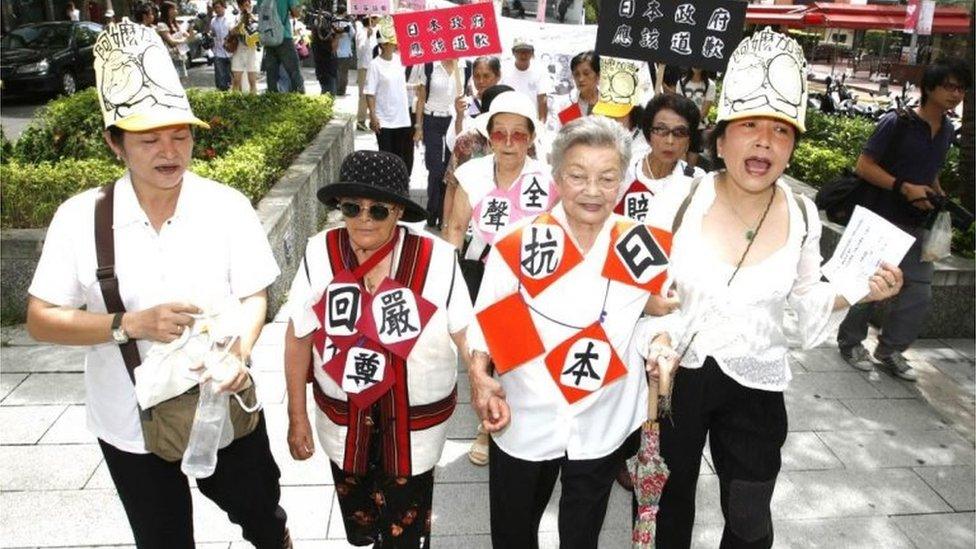
Taiwan's former wartime sex slaves say Japan must help them too
Japan must apologise and compensate Taiwanese women used as wartime sex slaves, the island's government says.
President Ma Ying-jeou demanded Japan "return justice and dignity to them".
The call came a day after Japan and South Korea reached a landmark deal on the issue of "comfort women".
Estimates suggest up to 200,000 women were sex slaves for Japanese soldiers during WW2. Many were Korean - but others came from China, the Philippines, Indonesia and Taiwan.
Taiwan's government says it wants immediate negotiations with Japan on the issue.
"We hope the Japanese government can do better and take better care of the comfort women's welfare and dignity. Our stance has not changed," President Ma told reporters.
Lee Ok Seon: "I was forced to have sex with many men each day"
China's foreign ministry said Japan must "accurately face up to its history of aggression".
"As for whether Japan can do it, if its words and actions are consistent from start to finish, we will wait and see," spokesman Lu Kang said, Reuters reports.
A commentary in the state-run Global Times, external said families of Chinese "comfort women" wanted a similar apology from Japan after the deal with South Korean victims.
"I am very angry and upset, so are many other relatives. If Japan apologises to the victims in South Korea, why don't they apologise to Chinese victims?" asked Zhou Guiying, whose late mother, Guo Xicui, was used as a sex slave.
Just 23 "comfort women" remained alive in China as of August 2014, the paper reported. Only four are thought to remain in Taiwan.
The head of a group of Filipino victims of sexual abuse by Japanese soldiers during WW2 welcomed the deal with South Korea.
But Rechilda Extremadura told Kyodo News, external that former "comfort women" in her country should be compensated too.
"The Philippine government has completely neglected the issue of Japanese wartime sex slaves. That is why justice remains elusive for these aging victims," she said.

Japan-South Korea 'comfort women' deal
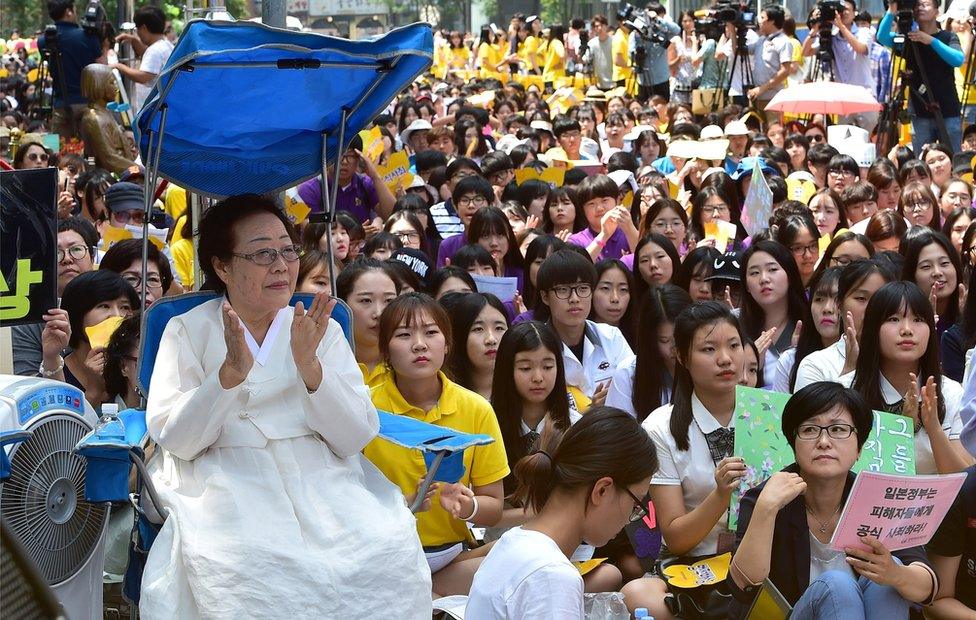
South Korean activists for comfort women have been holding weekly demonstrations outside the Japanese embassy in Seoul
Japan will give 1bn yen to a fund for the elderly comfort women, which the South Korean government will administer
The money also comes with an apology by Japan's prime minister and the acceptance of "deep responsibility" for the issue
South Korea says it will consider the matter resolved "finally and irreversibly" if Japan fulfils its promises
South Korea will also look into removing a statue symbolising comfort women, which activists erected outside the Japanese embassy in Seoul in 2011
Both sides have agreed to refrain from criticising each other on this issue in the international community
Read more:

Japan has repeatedly apologised or acknowledged its responsibility for wartime sex slaves, most notably in a 1993 statement by the then-chief cabinet secretary Yohei Kono.
It had also resisted giving greater compensation, arguing that the dispute was settled in 1965 when diplomatic ties were normalised between the two countries and more than $800m in economic aid and loans was given to South Korea.
A private fund was also set up in 1995 for the South Korean victims and lasted for a decade, but money came from donations and not from the Japanese government.
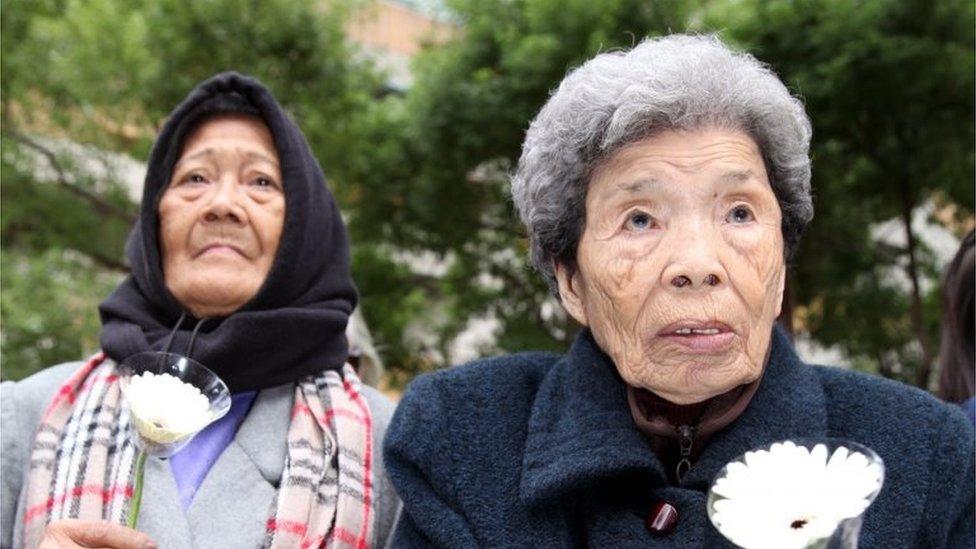
Only a handful of "comfort women" remain alive in the Philippines and Taiwan
- Published28 December 2015
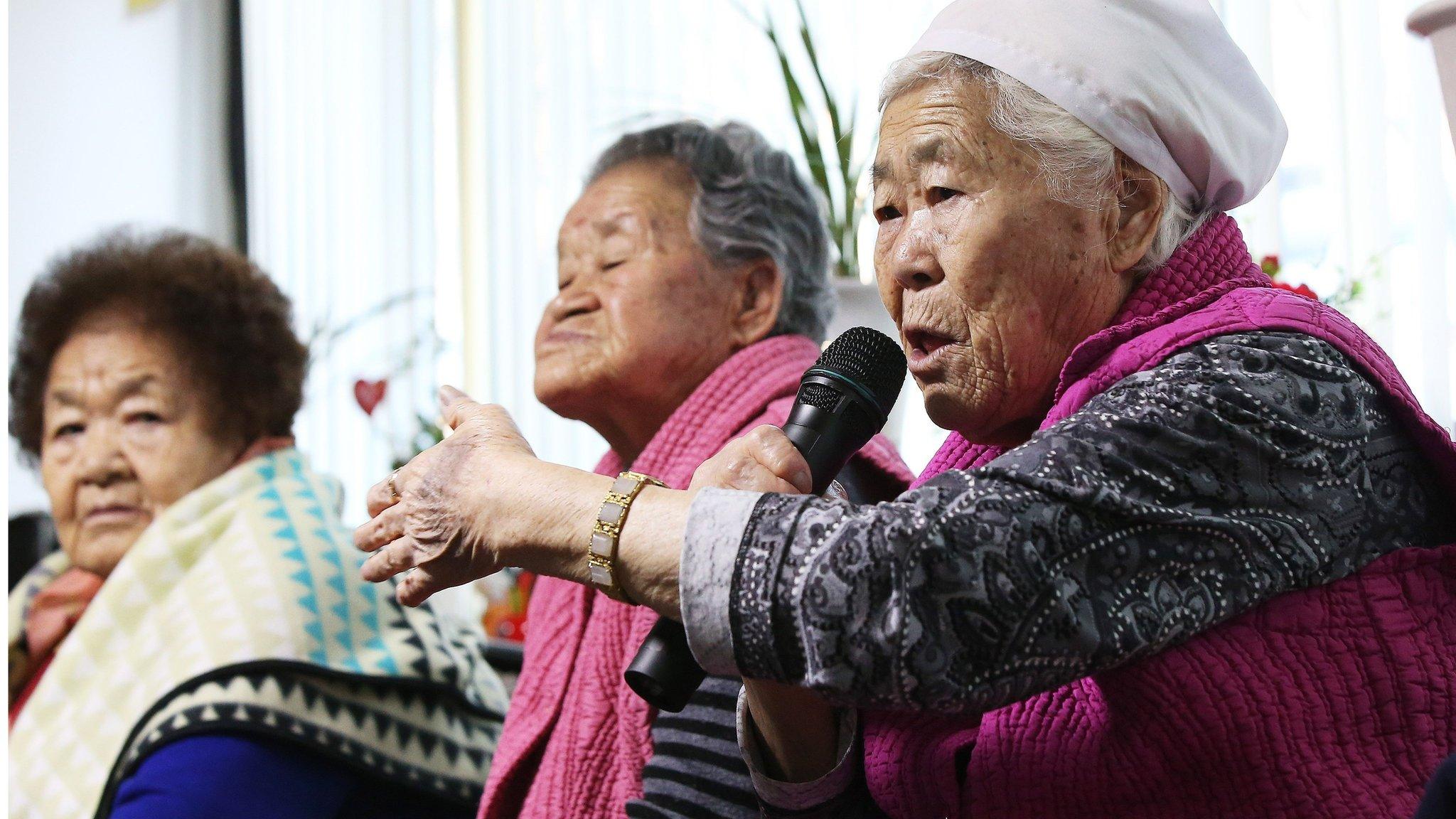
- Published3 August 2015

- Published25 December 2015
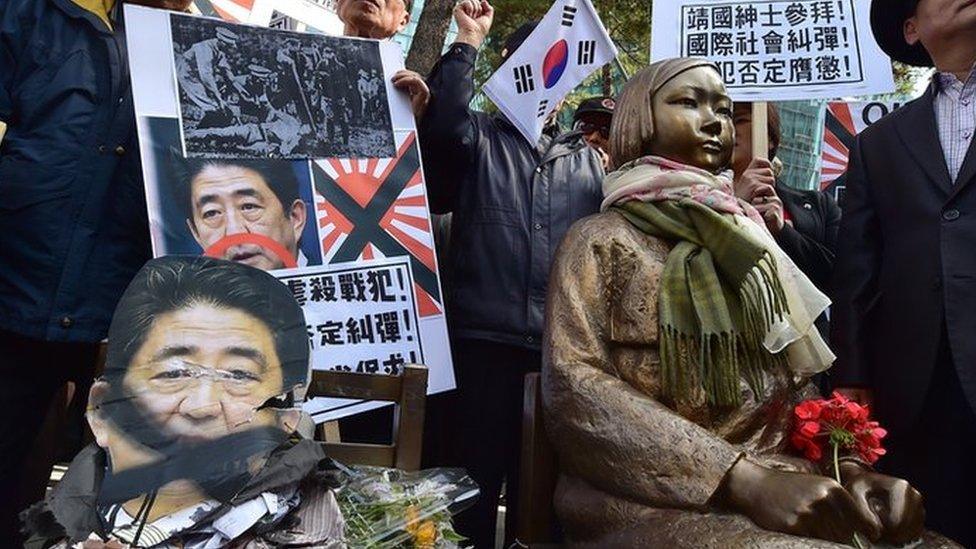
- Published3 August 2015
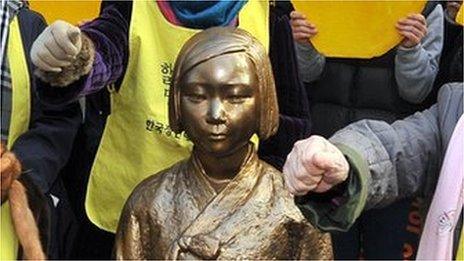
- Published28 April 2015
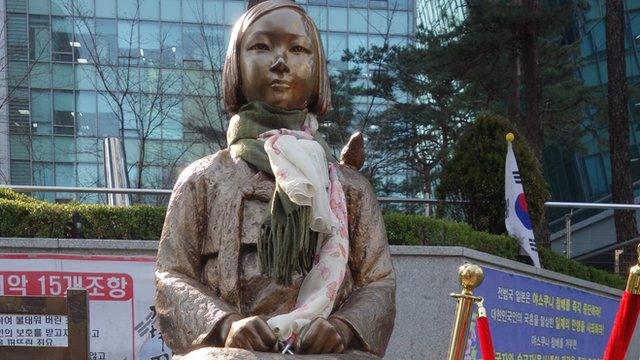
- Published2 November 2015
